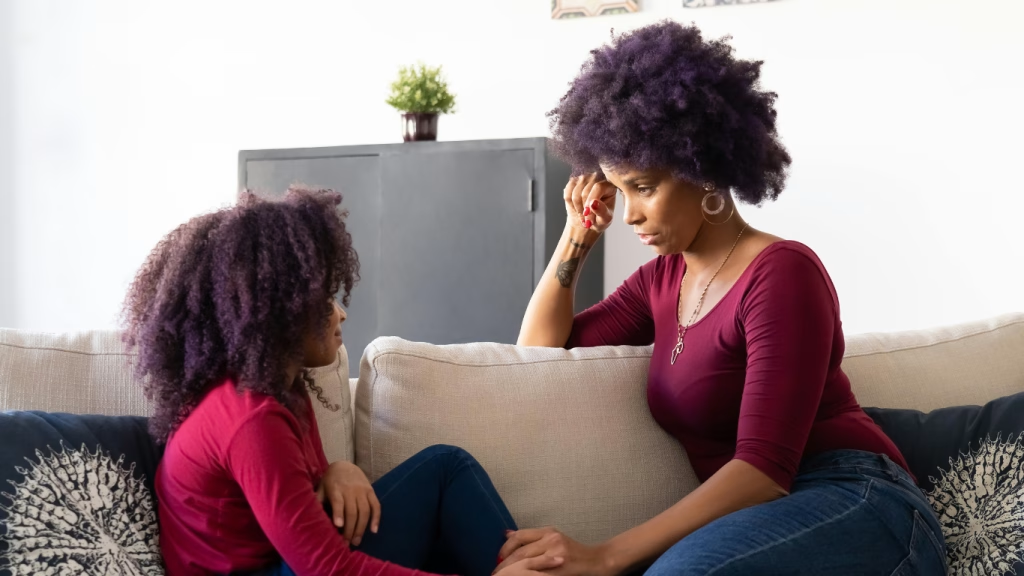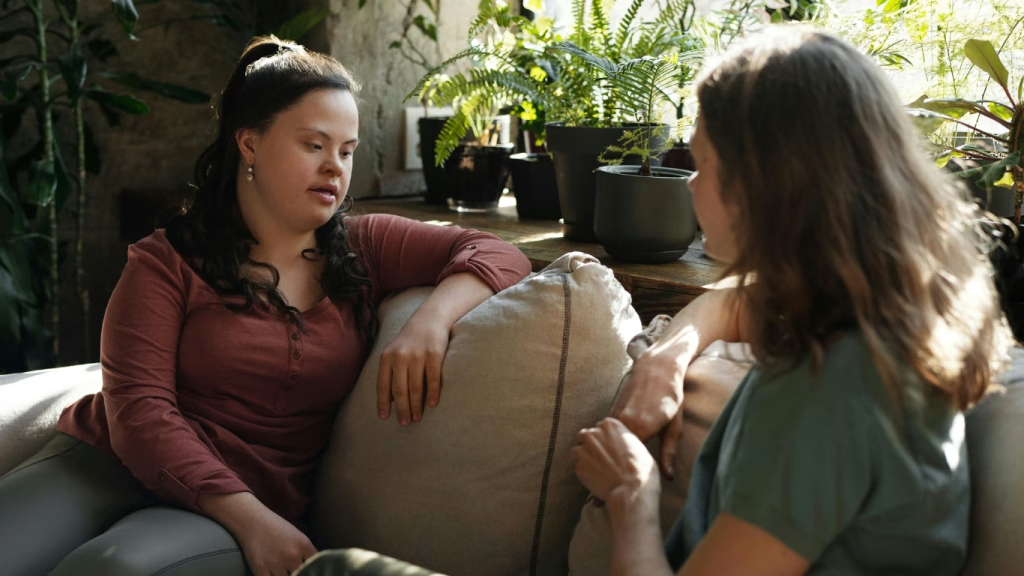Let’s start the conversation to stop domestic and family violence
Domestic and family violence is a difficult topic to address and can leave people feeling helpless. Is change possible? What kind of difference can one person make?
The answer may be a little more hopeful than you think. There are a lot of ways we can prevent domestic and family violence before it happens. It all starts with the conversations we have with our families and communities, and the culture of respect we shape together.
Violence is never the victim/survivor’s fault. The use of violence is a choice, and it is preventable.
We’ve put together this simple guide to help you start talking to people in your life about domestic and family violence. We’ve also added resources in each section to help you continue the conversations.
How to talk to children and young people about respect, consent and safety

Parents and caregivers play an important role in educating young people about respect, consent, and safety. Here are some starting points to help you frame the conversation.
- Be honest. When talking to children about these issues, acknowledge that they are tricky things to discuss. Tell them that you don’t have all the answers, and you are learning too. Apologise if there are times when you haven’t been respectful.
- Recognise disrespect and aggression. Calling this out in all forms is important – this includes bullying, teasing, fighting, online harassment, controlling behaviour, and more. You might find it helpful to use examples from movies, the internet, or other situations you’ve observed together.
- Model respectful relationships. This includes treating friends and partners with respect, but it should also include acknowledging and apologising when you’ve crossed a line.
- Discuss often. The more you talk about these topics, the easier it will become. It’s challenging to only address it when you might be in the middle of a difficult situation. Inst
Resource: The Conversation Guide: Having conversations with young people about respect.
How to talk to your mates about respect

It’s important for men to stand up and play a part in the elimination of DFV. There can be many negative stereotypes around what it means to “be a man,” such as not showing emotions or needing to “toughen up.” When men act as role models and display positive, healthy versions of masculinity, it makes a big difference.
It’s also important to call out jokes that are disrespectful, sexist or harmful. It’s not “just a joke” – when people trivialise these issues, it empowers people with disrespectful attitudes to think this behaviour is normal and acceptable.
And remember – an estimated one in five Australians have experienced partner violence or abuse. That means there is a pretty high likelihood that a victim/survivor is hearing that “joke”. They might not say anything, but they’ll remember who was laughing – and who stood up for them.
Resource: Respect starts with a conversation – at your sports club, with your friends and in your home.
How to talk to someone who may be at risk of domestic and family violence

If you know or suspect that a friend, family member or colleague is experiencing DFV, you can help. The most important thing is to ask, listen, and believe their story. Remember to provide validation rather than blame – when a woman chooses to leave her partner, it is one of the most dangerous times in her relationship. Victim/survivors know how to best keep themselves and their children safe.
- Ask them how you can help. Be guided by your friend or family member – don’t jump into action unless they ask you to.
- Stay in touch. People experiencing DFV will often withdraw from other relationships. This isolation only makes it harder. Keep a line of communication open and let them know you’re here to talk whenever they’re ready.
- Offer to help find support. DVConnect services can help and are free to access. Ask if they need assistance getting in touch – for example, offering the use of your phone to make a call. Call 1800 811 811.
Resource: Supporting someone you know | Womensline
How to talk to someone who is using domestic and family violence

It’s incredibly difficult to know how to interact with someone who is using DFV.
- Stand up. Don’t just ignore the problem or minimise the damage. Say something to let them know that you have recognised the behaviour, and you are not okay with it.
- Encourage them to get help. You can refer them to the DVConnect Mensline on 1800 600 636.
- Get help yourself. It can be tricky to know how to support a person to change their use of violence. You can call DVConnect Mensline on 1800 600 636 and get advice and guidance.
- If appropriate, offer support to the victim-survivor. Let them know you believe them, and you want to help. Then, ask them what support might look like for them.
- Ensure your safety first. If anyone’s life is in danger, call 000.
Resource: Supporting someone you know | Mensline
Starting these conversations is the first step towards preventing DFV. Victim/survivors need all members of the community to hold people who are using violence accountable.

